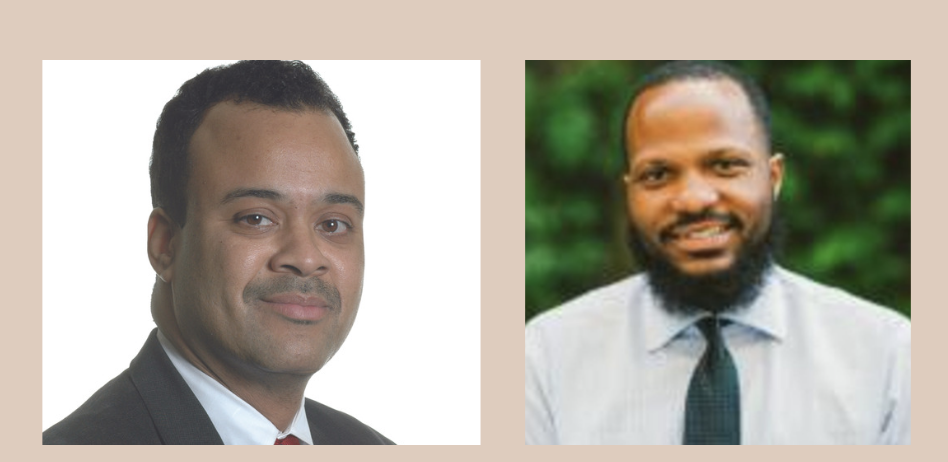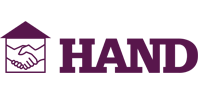Five Minutes With David Bowers & Paul Stanford

David Bowers Paul Stanford
To wrap up this year’s GenerationHAND mentorship program we interviewed one of our mentor-mentee pairings, David Bowers (Enterprise’s Vice President of the Mid-Atlantic Market and Senior Advisor of the Faith-Based Development Initiative) and Paul Stanford (Director of Grants Administration at the City of Baltimore Department of Housing & Community Development). During our conversation, Paul attributed a large part in obtaining his current role to David’s mentorship. David also highlighted the value of the insights he received from Paul, which led to interesting perspectives about approaches to life and work.
HAND: Paul, congratulations on your current role as Director of Grants Administration at the City of Baltimore DHCD! Can you tell us about your journey to this point and how your mentor, David Bowers, played a role in helping you to secure your current position?
PS: Thank you. My journey in the housing field started as an AmeriCorps Member with Habitat for Humanity of Michigan during college. The exposure I received seeing the positive impact Habitat for Humanity had on the community and families they helped become first-time homeowners gave me clear direction on the career field I wanted to pursue: housing. Specifically, affordable housing.
From there, I continued to expand my career and gained experience in different areas of housing, from housing counseling, foreclosure prevention, housing policy, program development, real estate development finance and managing large local rental housing and grant programs with different localities in Virginia, District of Columbia Government, and now the City of Baltimore.
My role as is special because I play an important role in providing and managing millions of dollars in funding for housing and community development projects that will provide affordable housing and an economic impact on much-needed areas in Baltimore and manage a team of dedicated staff members. I now work in the city where I live and bought my first home. During the interview preparation stage for the position, I reached out to my mentor David Bowers for guidance and interview prep assistance. David previously served in a leadership role within Baltimore on its Affordable Housing Trust Fund Commission and would be a great asset in helping me prepare for my interview.
During our discussions, David provided me with expert-level training on one of the main grant programs I would be responsible for under the position and how to manage a team effectively. Having these discussions with David in preparation for the interview increased my confidence during the interview process, which eventually led to an offer and my acceptance as Director of Grants Administration.
HAND: David as the vice president and Mid-Atlantic market and senior advisor of the Faith-Based Development Initiative for Enterprise Community Partners, you lead a team that provides local developers access to financing and capacity building/technical assistance. Additionally, you are engaged with local coalitions advocating for increased resources for affordable housing and community development, among many other hats that you wear. Prior to joining Enterprise, you were a program manager for a single-family housing program at the AFL-CIO Housing Investment Trust, a financial and programs advisor at the Community Development Financial Institutions (CDFI) Fund, and worked in the office of U.S. Senator Barbara A. Mikulski. You have extensive experience in housing and community development, especially working in collaboration with public and private sector stakeholders in Baltimore and DC. Can you tell us how your mentors have assisted you along your journey?
DB: Professional mentors have assisted me in my journey with several critical lessons. An early lesson was to be willing to stretch beyond my comfort zone to engage in an opportunity that would expand my horizons and provide me with strategic experience and exposure. This is how I ended up doing appropriations work during my tenure working with former U.S. Senator Barbara Mikulski. I was hesitant to take advantage of the opportunity because I didn’t think of myself as “a numbers guy” but more of a policy guy. One of my mentors in the office essentially told me to sit down, shut up, and listen. She then schooled me on the power of the appropriations process and how valuable it would be for me to learn that process and be in those rooms. It was some of the best advice I have ever received. A second lesson I was taught by a mentor was to think three moves ahead. At one point, I was about to leave the Senator’s office to take a job that would have doubled my pay. My mentor told me it was a nice next step. But has counseled me to think of how it would position me for the second and third move after that. He and I would play chess at times. He always beat me. Part of the reason is that he could consistently think three to four moves ahead. I decided to stay on board and get more experience doing appropriations work. That was a better long-term professional move for me though it required a short-term sacrifice financially. A third lesson a mentor taught me was to always understand what I am looking to get out of an employment experience because the employer/company always knows what they are looking to get out of the employee. Whether it is the impact I want to have via my labor or what I want for my own professional growth and development – be clear on what is in it for me. She helped me understand the importance this plays in setting the dynamic for interaction over issues including work responsibility, pay, time and title.
HAND: Paul, why do you believe your mentor-mentee relationship with David was fruitful? Specifically, what actions or mindset did you have as a mentee that helped lead to the success of your relationship?
PS: No knock to present or past mentors in the program, but I have the best mentor. I could not have asked for a better mentor. David took the GenerationHAND mentorship program seriously by ensuring we met bi-weekly, took notes, followed up on challenges I faced, and met the entire scheduled meeting times. I respected our mentor-mentee relationship by being available and on time for scheduled meetings and being prepared to have open conversations with David.
My mentor-mentee relationship with David began before the opportunity with Baltimore. With David being previously involved with the City of Baltimore and having expert-level knowledge on one of the grant programs, I would be responsible for making me believe our mentor-mentee relationship and my current position with the City of Baltimore was meant to be.
HAND: David, what is something you took away from this program that surprised you?
DB: A pleasant surprise for me in the experience as a GenerationHAND mentor was the insights I received from my mentee. During our conversations, there were interesting exchanges where I heard interesting perspectives about approaches to life and work from a different view. A variety of factors were likely at play – being from different generations and having different life experiences. I was surprised at how our conversations really became comfortable two-way exchanges.
HAND: Paul, what would you say to mentors and mentees considering joining the GenerationHAND mentorship program?
PS: For those considering joining the GenerationHAND mentorship program, I would say do it. Mentors and mentees can benefit from each other and potentially create a long-term mentor-mentee relationship. Communication and setting meeting expectations are key to a successful mentor-mentee relationship.
HAND: David, why did you want to be a mentor in this program, and what advice would you give to future GenerationHAND mentors?
DB: I was willing to be a GenerationHAND mentor because I believe strongly in giving my time, talent, and treasure to benefit others. Part of that is from a sense of religious obligation. Part of it is from a sense of moral and cultural obligation. Others have poured into me, so I am compelled to pour into others. My hope is that my insights, questions and listening ear….that the time I spent with my mentor will play some part in helping him have an even more abundantly successful career. I believe each generation should go further than the one before–building upon prior generations’ work and lessons. For future GenerationHAND mentors, I would suggest to be available, be open, be honest and be you.





Leave a Reply
Want to join the discussion?Feel free to contribute!